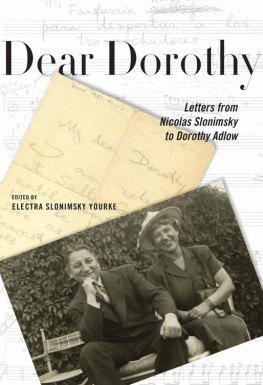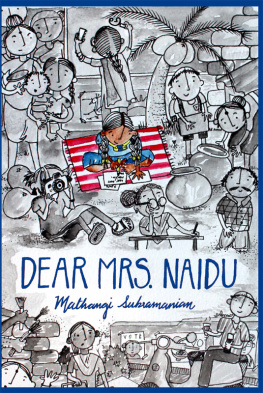Table of Contents
DADDY-LONG-LEGS and DEAR ENEMY
JEAN WEBSTER was born Alice Jane Chandler Webster in 1876 and grew up in Fredonia, New York, and in New York City. A grand-niece of Mark Twain, Webster attended Vassar College, where she developed an interest in orphanages and social welfare and began to pursue a literary career. Her interest in both continued after her graduation in 1901, especially when she moved to New Yorks Greenwich Village. She published stories and articles in newspapers and in magazines, including McClures. Her first novel, When Patty Went to College, came out in 1903, and was followed by The Wheat Princess (1905), Jerry Junior (1907), The Four Pools Mystery (1908), Much Ado About Peter (1909), and Just Patty (1911). In 1912 Webster published Daddy-Long-Legs, the novel that brought her great popular acclaim as well as financial security when she adapted it into a stage play in 1914. It later became the basis for several movies. The novels sequel, Dear Enemy, appeared in 1915. Also in 1915, Jean Webster married lawyer and Standard Oil Company heir Glenn Ford McKinney, some seven years after they began their affair (and a few months after his divorce was final). She died the following year, shortly after giving birth to their daughter, who survived.
ELAINE SHOWALTER is the author of the groundbreaking A Literature of Their Own and other books including Teaching Literature, Inventing Herself, Hystories, Sexual Anarchy, and The Female Malady, and the editor of volumes including the Penguin Classics editions of Louisa May Alcotts Little Women and George Gissings The Odd Women. Her articles have appeared in an array of publications, including the Times Literary Supplement and People. She is professor emerita of English at Princeton University and now lives in Washington, D.C., and London.
Introduction
Jean Websters Daddy-Long-Legs (1912) and its sequel, Dear Enemy (1915), come from a literary era in which best-selling American woman writers like Kate Douglas Wiggin (Rebecca of Sunnybrook Farm), Eleanor H. Porter (Pollyanna), and Gene Stratton-Porter (A Girl of the Limberlost) created sentimental girl heroines. In contrast, one of the truly modern qualities of Websters writing is its lack of sentimentality and preachiness. Although her heroines Judy and Sallie are idealistic reformers, they are also irreverent and irrepressible; although they are staunch feminists, they also take great pleasure in kid gloves, new dresses, and male company. The epistolary format of these two novels allows the liveliness of womens letter-writing to cloak the radical notions of womens limitless strength and capability.
In many respects, Websters novels are in the great American tradition of Louisa May Alcotts fiction. Like Jo March in Little Women, which Judy mentions among the books she is reading in Daddy-Long-Legs, Judy aspires to be a writer, and must discard both the patriarchal models of her education and the sensational stories of her imagination before she realizes that her own experience is her best material, and finds her own voice. Like Jo in the sequels, Little Men and Jos Boys, Sallie McBride in Dear Enemy discovers that running a model institution for children is more interesting than romance; I see marriage as a man must, writes Sallie, a good, sensible workaday institution; but awfully curbing to ones liberty.
Finally, like Jo, both Judy and Sallie find happiness with men who will accept and support their yearning to work. Although each novel ends with a predictable love scene, these seem almost an afterthought, for the action of these novels comes not from Judy Abbotts and Sallie McBrides search for a strong man, but from their discoveries of their own strength. They are unconventional New Women, as well as independent American girls; indeed, Sallie muses, one man doesnt seem quite enough for me.
Daddy-Long-Legs, the most popular of Jean Websters books, is both a love story and a Knstlerromanan autobiographical account of an artists development. Rescued from the dreary wasteland of the John Grier Home for orphans by an anonymous philanthropist, Jerusha Abbott (whose solemn name the director of the Home has selected from the phone book and the cemetery) is sent to college with her benefactors express intent that she should be educated to become a writer. A John Grier Trustee, he has read her essay Blue Wednesday, describing the Perfectly Awful Day of the month, the first Wednesday, on which the trustees and their ladies come to hear reports and to inspect their charges. Blue Wednesday is satiric and impertinent, but luckily the Trustee has a sense of humor and finds it original. We can judge it a bit ourselves, because Blue Wednesday is also the first chapter of the novel, and the only one written in the third person.
The trustee wishes to be anonymous, and insists only that Jerusha send him monthly letters of her progress, addressed to Mr. John Smith, because he thinks nothing so fosters facility in literary expression as letter-writing. But he will never reply, because he himself detests writing letters, and does not care for girls. Thereafter, the story is told through the lively letters of the heroine, and illustrated with her cartoons and drawings. She begins by renaming herself Judy and giving her benefactor the nickname Daddy-Long-Legs because she has caught a glimpse of his shadow, with grotesquely elongated legs and arms. (Webster glosses over Judys lack of initiative in figuring out who he issurely the John Grier Home cannot have anonymous trustees.) But by the novels end, after her graduation from college, not only has Judy discovered Daddy-Long-Legs identity and found her true love, but she has also sold her first novel. Finally, she reflects upon a Blue Wednesday from the vantage point of her last semester of college, and concludes that being an orphan was a very unusual adventure that has given her a perspective on the world, that other people, who have been brought up in the thick of things, entirely lack.
Webster weaves Judys road to authorship through her letters to Daddy-Long-Legs. She buys five hundred sheets of yellow manuscript paper with his first Christmas present, and regularly wins literary prizes and publications in college; a poem, From My Tower, as a freshman; the short-story competition as a sophomore; another story and a scholarship for marked proficiency in English the same year. As a junior, she tries writing a novel based on her two-week holiday trip to New York, but it is rejected as improbable and unnatural. She burns it, and dreams that she is holding a book called The Life and Letters of Judy Abbott, with a picture of the John Grier Home on the cover. By her senior year, she realizes that her own life is her true subject. Im a realist now, she explains. Ive abandoned romanticism; I shall go back to it later though, when my own adventurous future begins. And when she decides to marry, she realizes that she can keep on being a writer: the two professions are not necessarily exclusive.
How much of a realist was Jean Webster? Many of the themes and details of the two novels are autobiographical, but Websters life was much more privileged and cosmopolitan. Born in 1876 to Charles Luther and Annie (Moffet) Webster, Alice Jane Chandler Webster enjoyed a comfortable childhood in Fredonia, New York. In 1884, her father became the business partner and publisher of Mark Twain, his wifes uncle, and moved the family to Manhattan, where he directed the Charles L. Webster Publishing Company. Publishing such best-sellers as














